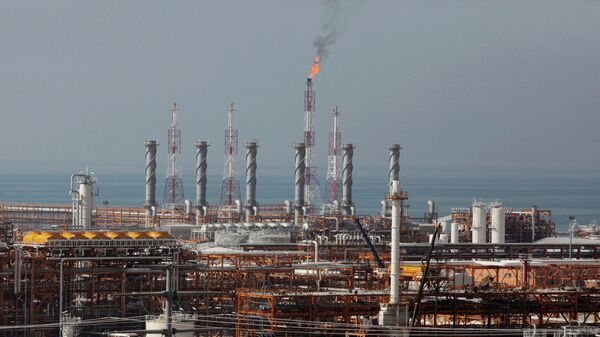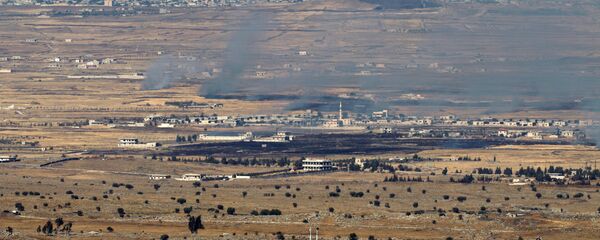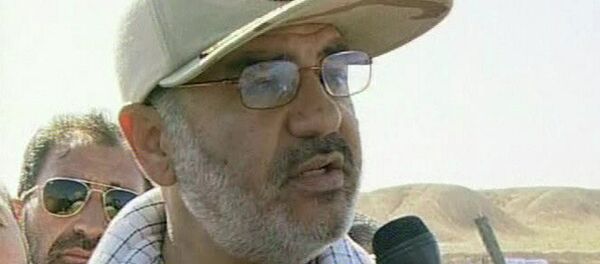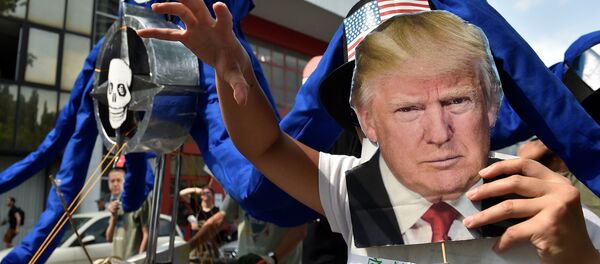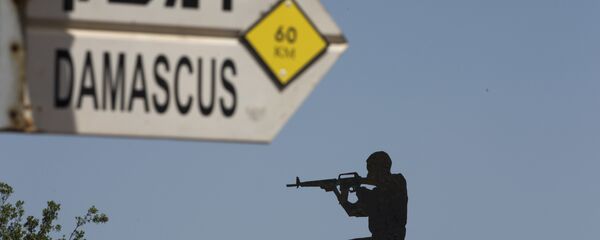Sputnik has discussed Israel's policy towards Iran's forces in Syria with Professor Meir Litvak, director of the Alliance Center for Iranian Studies at Tel Aviv University.
Sputnik: What is Tehran's position when it comes to withdrawing its troops from Syria? How does Iran benefit from its military presence in this country anyway?
Meir Litvak: Tehran's official position is that it is in Syria at the invitation of the Syrian government and that it will not withdraw its forces unless the Syrian government requests it to do so. This is the official position and in my view, the real position is that Iran will refuse to withdraw its forces from Syria unless it has no other choice. Iran is stationed in Syria I would say for three major reasons.
Secondly, by having its troops in Syria Iran can threaten Israel from Syria, both in a way to alleviate possible pressure or threat from Israel on Hezbollah and also to deter Israel from doing anything to Iran.
READ MORE: Israel is Determined to Prevent Lebanonization of Syria — Scholar
And thirdly, Iran would like to start a low-intensity war of attrition against Israel from the Syrian border and possibly also like to build missile bases in Syria to threaten Israel. So Iran has strategic reasons to be in Syria, to expand its original influence and consolidate its position as an important Middle Eastern power in the Middle East and also to threaten Israel.
Sputnik: What's your opinion with regard to the impact that could be proposed by these US sanctions against countries that are buying Iranian oil? And what effect could it have on Iran's economy with that?
So it will certainly have a major effect on Iran and you can already see it, by the way, with the decline, I would say almost collapse, of the Iranian currency which went down from 40,000 rials per dollar last year to 90,000 rials per dollar. It's lost more than half of its value. Clearly, there is a fear in Iran that Iran will not be able to export its oil, already leading to threats by the Iranians that if Iran is not be able to export its oil, no country will be able to do so from the Persian Gulf.
READ MORE: Syrian Army's Latest Gains Elicit Rehashed Western Media Allegations — Analyst
India is trying to extract better trade conditions from Iran in return for purchasing Iranian oil. So the whole picture is not clear yet, but it's certain that the sanctions have already had an effect on the Iranian economy.
Sputnik: Is it realistically possible to prohibit Iran from deploying military installations in Syria, what's your take on that one?
Meir Litvak: It all depends on, I would say, the international consensus. Clearly, a lot depends on the Russian position. If Russia will exert pressure on Iran, either to reduce or to completely eliminate its military presence in Syria, it would be very difficult for Iran to continue to do so. If on the other hand, Russia will agree to some Iranian presence, but only a limited one, I think the Iranians will have to comply.
READ MORE: Syrian Forces Ward Off Attack on Tiyas Military Base in Homs — Reports
Sputnik: Who could replace Iranian troops when it comes to fighting ISIS* and other extremist groups in Syria and Iraq? We know that once these conflicts do come to an end there's generally a vacuum in these countries and that usually allows these militant Muslim groups to influx these particular areas and further destabilize the areas, what's your opinion with regard to that?
Meir Litvak: ISIS is finished as a major military force both in Syria and Iraq. There's one thing, let's say, if continuing military presence to fight such extremist movements, which you can say is legitimate, but you don't fight this extremist movement by staging your militia on the Israeli border — this is one thing — you don't fight this extremist movement by establishing missile bases in Syria.
READ MORE: United States and Iran Unlikely to Face Off in Strait of Hormuz — Journalist
*Daesh (also known as ISIS/ISIL/IS) is a terrorist group banned in Russia
The views expressed in this article are solely those of Meir Litvak and do not necessarily reflect the official position of Sputnik.
